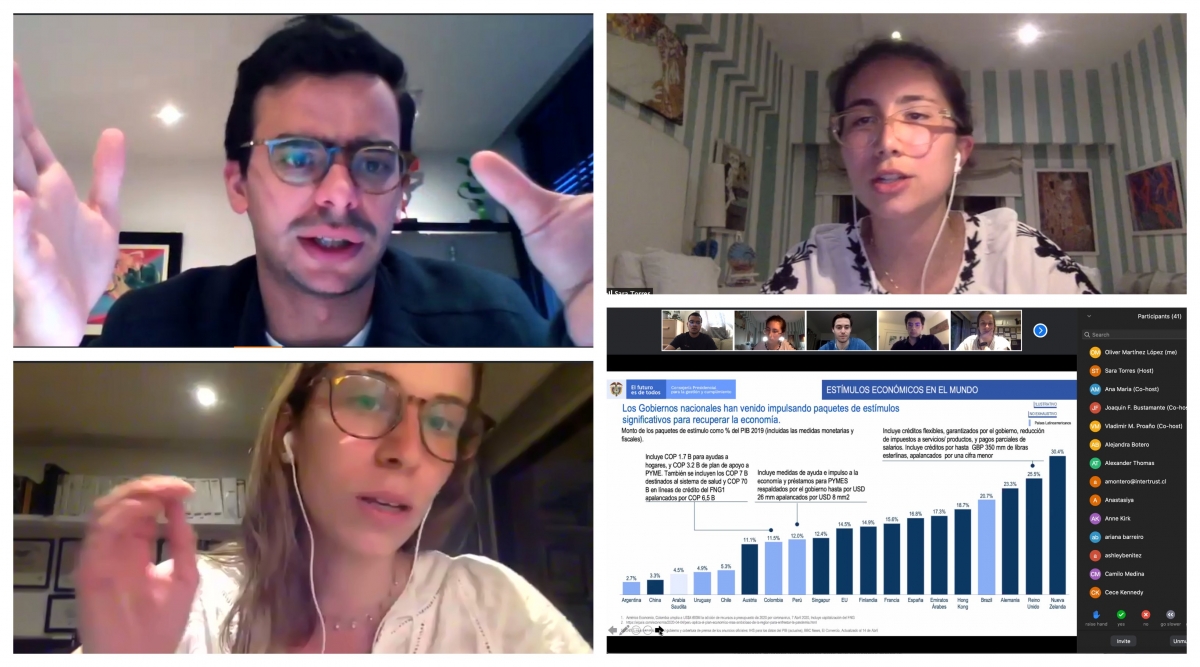COVID-19 and the IGL

The campus is quiet. The IGL has not had its doors open in over a month, since March 16. In its 34-year history, this is unique for the Institute. On February 28, the IGL hosted an event for more than 200 people with Boston Celtics Center Enes Kanter and on March 13, we were saying goodbye to our students as the campus closed and prepared to move online.
Responding to the potential threat of COVID-19 happened very quickly. Many of the programs that the IGL and its student groups had planned for the spring had to be postponed or cancelled.
The EPIIC class met before they left campus, and the students decided that they would rather postpone the symposium than try to hold it online at the end of March, as people were still grappling with changing circumstances. It is now scheduled for October 8-10, 2020, and the IGL has made a commitment to bring back to campus any members of the colloquium who have graduated or who may spend next semester abroad. (The students also held an “IGL graduation” for the Jessie Newman, the only senior in this year’s class.)
The IGL did not have the same option with Inquiry. Inquiry was moved online and shortened in time. Focusing on the Rohingya crisis, it was held on April 3 with about 60 high school students.
The EPIIC class has moved online, featuring Zoom discussions twice a week (with students participating across 17 time zones!). The last half of the spring semester has focused on memoirs, from Cambodia, the wars in Yugoslavia, the Holocaust, the Armenian Genocide, and the civil war in Yemen.
The IGL did have to postpone or cancel a number of other events, along with student group initiatives. The Latin Affairs Committee will be holding its symposium on “Protests in Latin America” in the fall, and our new Tufts Asian Affairs Group is looking for a new date for the SURGE annual Sino-American symposium. The fact-finding trips for the Middle East Research Group and the Latin American Committee, to Cyprus and Colombia respectively, have been postponed, as has the ALLIES Joint Research Project to Colombia.
Canceled events include ALLIES’ FieldEx, Amnesty International’s Jamnesty, and Engineers Without Borders’s 6k Run, as well as a number of panel discussions, from career panels to civilian life after the military to Mexican politics.
Tufts has announced that it is halting all university travel until August 20, 2020, which means many summer plans and programs will be affected. With the IGL’s emphasis on connecting theory to practice, a survey was sent to all IGL participating students to gain a better understanding of the impact COVID-19 is having on student summer plans, from jobs to internships to projects. More than 100 students replied, with more than 75 percent of those affected. The IGL plans to reach out to its different constituencies to see if there are short and summer-long projects that students can do remotely (if you have a short- or long-term project for a student, please let us know at igl@tufts.edu).
The IGL is also looking into providing online professional development for our student groups throughout the summer, with topics such as working on the U.S. foreign service or designing monitoring and evaluation plans for on-site projects.
